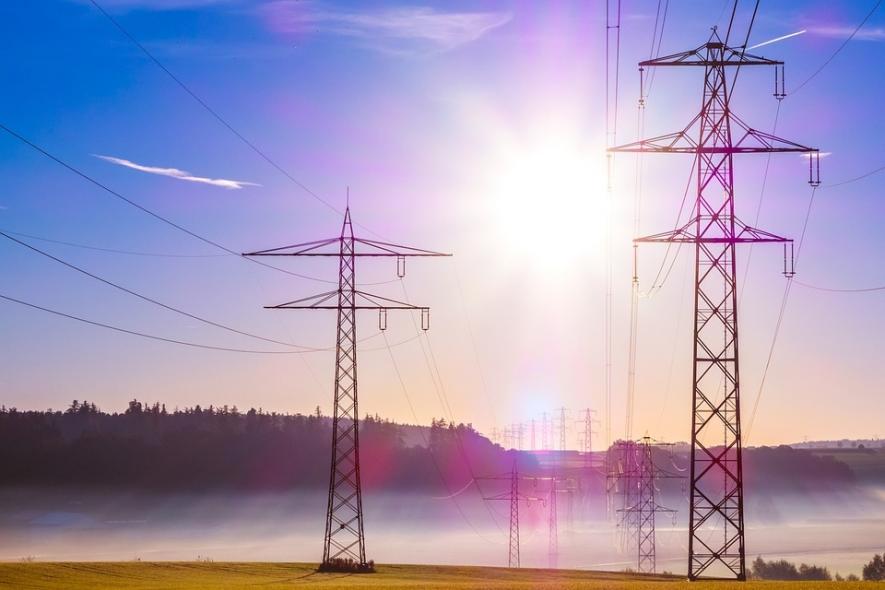SC To Hear Loan-Defaulting Corporate Power Producers’ Pleas Against RBI’s Insolvency Mandate Today

The Supreme Court on 14 November is set to hear a clutch of petitions from loan-defaulting corporates — mainly in the power sector — challenging a 12 February directive of the Reserve Bank of India (RBI) that tightened the rules regarding stressed assets.
On 12 February, the RBI had released a circular that put forth a revised framework for ‘Resolution of Stressed Assets’.
It mandated that lenders to companies defaulting on loans of Rs 20 billion (Rs 2,000 crore) and above — as on 1 March 2018 — either implement a Resolution Plan within 180 days, or file for insolvency under the Insolvency and Bankruptcy Code (IBC) within 15 days of expiry of the 180-day deadline.
If a company defaulted after 1 March 2018, then the 180 days would be counted from the date of the first such default. Scrapping a number of existing debt restructuring schemes for bad loans, the RBI circular also introduced the concept of one-day default, whereby banks must identify even a day’s delay in repayment as incipient stress and start a resolution plan.
Also Read: Power Sector NPAs: New Report Slams Parliamentary Panel on Energy
These hearings in the apex court are crucial — not only because the banks face exposure to non-performing assets (NPAs) worth more than Rs 1.74 lakh crore from the thermal power sector alone, but also because relief to stressed power producers from facing insolvency proceedings is among the bones of contention between the RBI and the BJP-led NDA government, who are at loggerheads right now.
The 12 February circular sent a whole lot of defaulting corporates — especially thermal power producers — into panic mode.
Both the defaulting corporates and the power ministry had requested the RBI for a special dispensation for the thermal power generating sector, citing factors that were ‘outside the control’ of these companies, such as shortages of coal linkage through fuel-supply agreements, lack of long-term power purchase agreements, etc. However, nearly all of the factors cited by the power producers emerged due to the Electricity Act 2003.
The government and the corporates had asked for at least 12 to 18 months for the resolution, but the RBI refused. So a batch of thermal power generation companies, under the banner of Independent Power Producers’ Association of India, had approached the Allahabad High Court. Other companies from the power sector and other sectors had also filed petitions before other high courts, including Delhi and Madras.
The RBI had informed the Allahabad High Court that the power generation sector had seen “chronic defaulters” and that many private power producers were “suppressing facts” and presenting a misleading view of how the 12 February directive would impact them.
The RBI’s deadline expired on 27 August, and the same day the Allahabad High Court denied interim relief to defaulting power producers and asked the central government to hold consultations with the RBI under Section 7 of the RBI Act and conclude it within 15 days.
Section 7 of the RBI Act states that “the Central Government may from time to time give such directions to the Bank as it may, after consultation with the Governor of the Bank, consider necessary in the public interest”.
But at the time, the finance ministry had desisted from invoking Section 7, because it had never been invoked in the history of the Act. However, now Section 7 of the RBI Act has become the major way through which the central government is trying to encroach upon the autonomy of India’s banking regulator and monetary authority.
While Allahabad High Court was hearing the power producers’ plea, the RBI had also moved the Supreme Court. The RBI had sought a stay on the proceedings at the Allahabad High Court and later asked that all petitions in various high courts challenging the circular be transferred to the apex court. The SC had refused to intervene in the Allahabad High Court proceedings.
On 10 September, the Madras High Court had granted interim relief to two stressed power companies.
However, on 11 September, the SC ordered to transfer all such petitions in different high courts to itself — while asking the banks to stay insolvency action against the companies that had moved the court until the next hearing on 14 November.
The SC’s stay order came the same day that the RBI’s 15-day deadline — after the 180-day period ended — for the banks to refer defaulting companies to the National Company Law Tribunal (NCLT) for insolvency proceedings expired. These 15 days were counted from 27 August, when the 180-day deadline for banks to resolve the stressed assets ended.
The 11 September reprive of two months applied to companies in the power sector (currently facing the worst bad loan crisis), the shipping sector, the textiles sector and the sugar sector. Those who had approached the SC included Independent Power Producers Association of India, Association of Power Producers, South Indian Sugar Mills Association–Tamil Nadu, Dharani Sugar & Chemicals, the Shipyards Association of India, Punj Lloyd, the All India Bank Officers’ Confederation, and other groups representing shipyards and textile companies.
Also Watch: Know Why India is Facing a Crisis in the Power Sector
The RBI’s directive affects between 80-100 stressed companies from different sectors, and at least 34 companies (of which 32 are corporates) are thermal power producers — with total stressed capacity of 40,130 MW, as the 37th report of the Parliamentary Standing Committee on Energy had identified.
However, the standing committee report too had failed to pin responsibility where it belonged — on the 2003 power sector reforms that had delicensed thermal power generation enabling hordes of private companies to enter production and opening the floodgates to the present mess, as has been pointed out again and again.
The RBI’s tightening of norms came in the wake of the mounting NPA crisis in the country’s banks (especially the public-sector banks, but also private banks) — the gross non-performing assets (NPAs) of all banks crossed Rs 10 lakh crore this March. The RBI classifies a loan or an advance as an NPA if its interest and/or instalment of principal remains overdue for a period of 90 days in respect of term loan.
Get the latest reports & analysis with people's perspective on Protests, movements & deep analytical videos, discussions of the current affairs in your Telegram app. Subscribe to NewsClick's Telegram channel & get Real-Time updates on stories, as they get published on our website.























